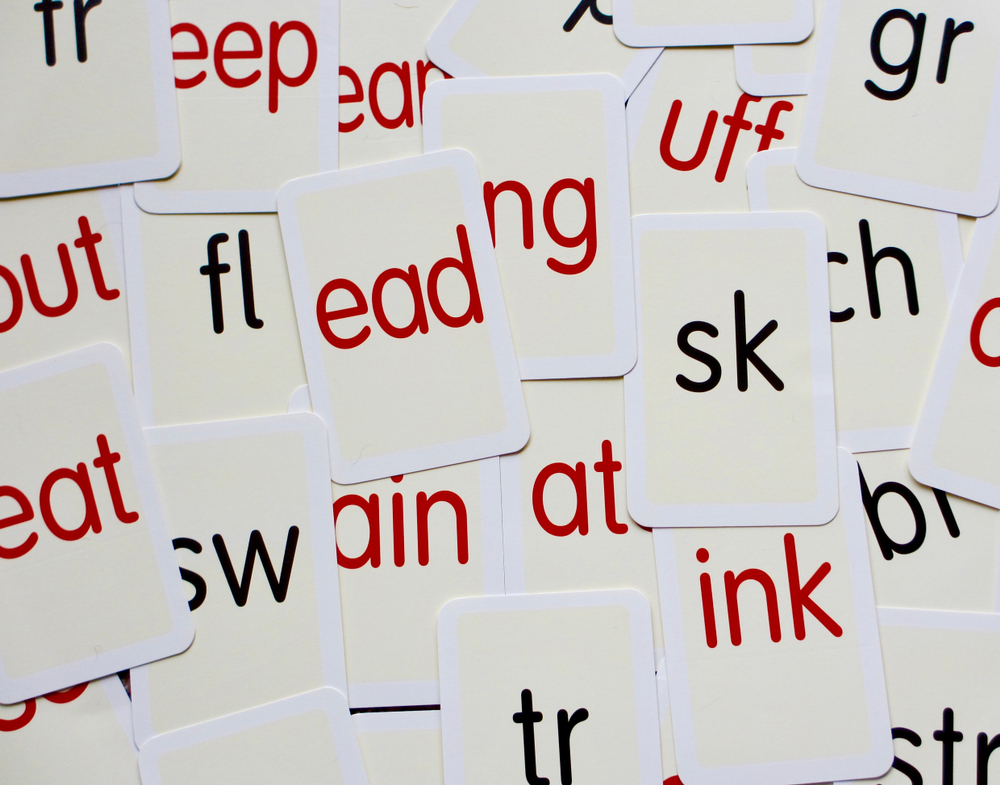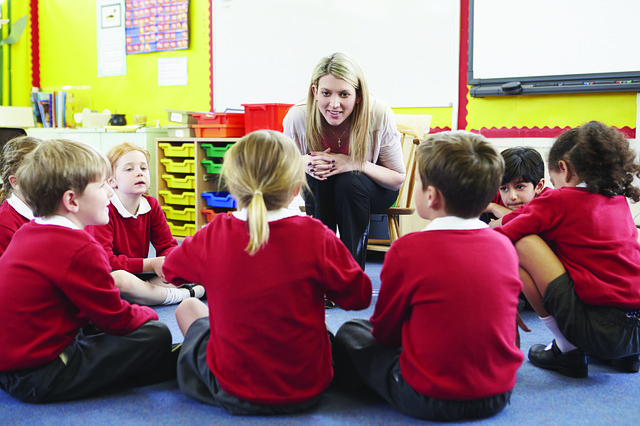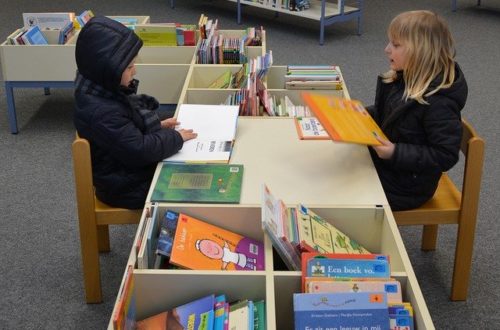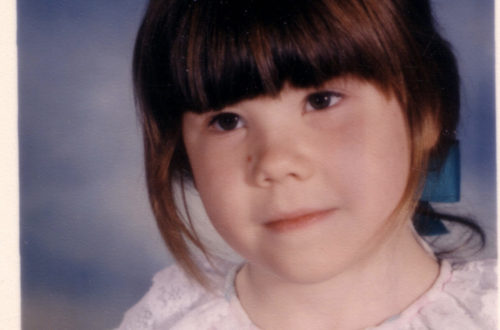I remember my early elementary school teachers very clearly. One teacher wore pantsuits and gold hoop earrings, one had a dour frown on her face all day long, and she made me stay in from recess for forgetting to dot my lowercase Js, and yet another handed me a dead, paint-covered fish to press onto a plain white t-shirt. One thing I don’t remember that well is driving almost an hour every weekend to get a reading intervention in first grade. My teacher at the time was a lovely woman, very kind, and we had a great relationship, but I wasn’t learning to read. I don’t have dyslexia or any other diagnosable condition, and it wasn’t anyone’s fault, good intentions all around, I simply wasn’t picking up the code. The big issue I had was that Whole Language was in vogue at the time. This is before they rebranded themselves as Balanced Literacy, and started hiding more behind terms like Constructivism or Inductive Reasoning. As a first grader, naturally, I had no idea what was going on, or that an insidious theory from the 1960s was the cause of my struggles. I recall a young tutor with glasses, and a library with an oil painting of a ship at sea, but topics such as the Reading Wars, phonemic awareness, and decoding skills weren’t on my radar by any stretch of the imagination. I don’t remember the scaffolding, I just stand here today with the results. I can read, and read at about 200-230 words per minute. I was lucky because I grew up with a clinical psychologist in the house who spotted my reading struggle right away, and knew what to do, and he did it without hesitation. My inability to read didn’t turn into a fight with the school, or a defensive emotional battle over a teacher’s practice. The job just got done…like pulling a splinter. I got the help I needed, became a reader, and got through to graduate school.
As a teacher myself now, I’m working with students, by and large, who struggle to read. For the most part, these kids are older and have either gotten little to no reading instruction, or reading instruction that doesn’t fit how they learn (and some things that I wouldn’t describe as instruction, and sometimes solutions that outright boggle my mind). I’m seeing the specter of Whole Language in Balanced Literacy, and I’ve seen various degrees of struggle from severe to mild. I encountered the harmful practice of Constructivism again as Inductive Reasoning in high school Geometry, and, surprise surprise, I never really learned Geometry. Apparently, we didn’t need formulas or modeled practice because Geometry is “common sense” and “natural” and “all around us.” I can safely say, at least for me, high level math is not common sense. Figuring out the area of a circle is not something I instinctively know how to do. I needed a teacher to actually teach the material to me instead of waxing poetic about some utopic notion that learning happens a la spontaneous generation. I guess we should all be grateful that Louis Pasteur wasn’t taught by a constructivist or we’d still be dealing with rabies and plenty more bacterial contamination. I’ll never forget how stupid and frustrated I felt in that class. Language came easily to me after I learned to read, but math never has, and getting such a full-on dose of constructivist logic at that stage in my high school career left me with a math phobia that I still have today.
The common thread I see throughout my experiences, and the experiences of the students I work with now, is the pain and the anguish that follows a learning struggle, and how much it hurts the kids. Reading is everywhere, it’s unavoidable, it’s necessary in all areas and facets of society. I’ve been amazed at how common it is to find the mindset that reading is natural, and a strong defensive quality when you probe that way of thinking. As a kid, I always assumed teachers, like my high school math teacher, were an aberration, the outliers of educational society. I was just unlucky enough to get saddled with a teacher who had no idea how to present math to me. It quickly became obvious that that class was not outlier, and that this methodology of reading and learning is natural, which I’ll grant sounds nice on paper, is everywhere. The term toxic positivity was introduced to me recently, and that’s the term I’d use to describe my experience with constructivism and those who practice it. There’s a seemingly Stepford level of happy, natural, peace and harmony, to cover up an inconvenient truth: it does not work. There’s a genuine desire to help kids, mixed with a passionate obstinate insistence on sticking with a certain program or methodology, whether or not there’s evidence to support it. I’ve been fascinated by the psychology behind this phenomenon since I started working as a teacher because these two things seem so incompatible. As educators, we are still learners. We never stop learning, and, at least for me, the goal is to improve instead of relying on what I already know. New research and discoveries appear, and Whole Language icon Jean Piaget’s arguments from 1942 should not be the basis for modern day education. A great deal has changed since 1942, taking aside the fact that Piaget is an epistemologist and not an educator.
From my point of view, I would do whatever I needed to help a student. If that means changing my programming, updating my curriculum, I do it. No questions asked. I’m not dogmatic about my practice. If it’s working, I stick with it, and if it doesn’t, I change things up. I follow the data. I progress monitor so I know if kids are improving or not, and I never assume that something is naturally going to click for a student. Whenever I do probe into this fascinating dichotomy of wanting to help students, but also clinging to a severely outdated philosophy of education, I get pushed away with a smile, and a kindly, but firm “oh no I’m teaching the whole child.” This positive-sounding, yet ultimately insurmountable word soup of a phrase doesn’t account for helping kids develop their skills, and always seems to jump ahead to the “fun” stuff before kids actually have developed essential basic literacy skills, the skills that are critical but maybe don’t afford the teacher enough “creativity.” This phrase, the whole child really just comes across to me as a buffer to keep change at bay. It’s a siren call to the safety and comfort of the familiar for the people who practice this style of teaching. It doesn’t ask that much of the student or the teacher. It’s just a cozy, kick your boots up phrase. You don’t need to worry, it’ll all work out, it’s natural. If the skills don’t go up, then they don’t go up. My only question is what happens when the proverbial whole child is missing a dramatically important skill, like reading? What if the whole child needs to swim and can’t swim. We don’t tend to assume kids can swim and toss them in the deep end with no preparation to teach them how to swim. We’d rightly assume there’s a 50/50 chance they’d drown without first being shown how to swim step-by-step. Someone I met once, likewise, compared education to tossing baby birds out of a nest, and the thought naturally occurred to me that, just as an ill-prepared swimmer might drown, a baby bird with no flying experience has a good chance of dying of a broken neck on the forest floor without being taught how first.
When considering how I approach education, I always think of Gandalf the wizard barging into the golden hall of Edoras in Tolkien’s Lord of The Rings. Gandalf comes to Rohan with every intention of helping the people and their king, and he gets referred to as a storm crow for warning the Rohirrim about the coming threat of Mordor as a thanks. Greyhame they call him, “ill news is an ill guest.” King Theoden, who’s mind has been warped by Grima Wormtongue, is in a stupor of inactivity. Gandalf gets called all sorts of things, and ultimately has to resort to using his powers to make Theoden snap out of it. I always feel that way when I broach the subject of science, or when I’m forced to bring up the reality of having to work through various skills in a thorough and systematic way. I’m going to bring these topics up, and sometimes I do it too forcefully, but I’m going to do it because teachers have plenty of time, and kids do not. Not to compare myself to a wizard in a battle of good versus evil, though, deep down, it often does feel that way. This notion always comes about because I feel like I have to be the grownup in the room talking about the science, the party pooper. The person saying no, that’s not working. It sounds negative, and not positive to be the lone voice of dissent in a room full of people who believe reading is natural. Teaching reading the right way doesn’t have to be an overwrought emotional experience. It doesn’t have to turn into a fight, or a disagreement about pedagogy. It shouldn’t. All of that is the province of adults. The kids are just stuck in the middle of this ideological battle for supremacy. It’s reading! This shouldn’t be some byzantine political game. We have the research, we know what works. The science is unanimous and as clear as day. If I have to be the storm crow, then I have to be the storm crow. I feel I have to do what is right, and warn of the consequences of inaction or action that’s barking up the wrong tree. I have a responsibility to the students. It always blows back on me though. ALWAYS.
This chain of thought always brings me invariably to the two common stereotypes that teachers are either lazy moochers with long vacations, or they are seen as saints incarnate, depending on who you’re talking to. I want to focus on this perception that just because a teacher is nice or kind that that means the same thing as being effective. I hear those two words being used synonymously all the time, and it ties into this ultra-positive creative kind message being perpetuated around the Whole Language pedagogy. It’s this elaborate illusion of creating the impression that through the sheer force of the kindness and creativity of a single teacher, reading will occur through osmosis. It’s a compelling narrative, and I can see where it is effective and why it’s so widespread, and I can also see where it leaves a lot of readers behind. This is a teacher centric model more so than a student centric-one. It’s all about the teacher’s sense of self-worth, and it ties the teacher’s sense of self efficacy directly with their practice. This is ironic given Whole Language is supposed to be student-centric.
Of course, I always appreciated my kind teachers, and I still do, but I don’t think kindness is a prerequisite for being skilled, and I don’t think it’s helpful to connect the two. A bad program in the hands of a kind teacher is just as harmful, and perhaps more so because it’s poison being delivered by someone who cares about you, not knowing they are poisoning you. Poison is still poison at the end of the day. Teachers are people, just people, and we have strengths and we have weaknesses, and nothing is infallible. The point of learning, the point of being prepared for teaching kids, is to be open and to be flexible, because it is inevitable that we will get a handful or more of students who aren’t going to learn to read easily or learn math easily as the case may be. No one is going to learn to read under the assumption that reading is natural. Reading is not natural, and our brains are not wired for reading, quite the opposite. Reading has only been around for about 5,000 years of our evolutionary history, and it’s only become truly imperative for survival in the last 150 or so years. It’s as dangerous an assumption to assume teachers know nothing, as it is to assume teachers know everything based on the metric of their smile. Both are oversimplifications, and they give fuel to the fire of the anti-scientific folkloric leanings of constructivist thinking. I’d like to dispel the myths that teachers know nothing, just as much as I want to dispel the fantasy that their kindness can cause miracles that defy the realms of possibility within neurobiology.
Speaking as a teacher, and as someone who very nearly became a non-reader because of Whole Language/Constructivism, I’m more keenly aware of the bullet I dodged. I find it to be of immeasurable importance to be able to be objective about education, and take emotion out of the equation. Families, students, and teachers have to work together to help students be able to have choices in life, and if we want to be able to help them, we need to be able to truly help students. Getting lost in ideology, or forcing something to work, or giving in to our own desire to be creative, doesn’t help anyone. A big part of helping students involves sending them to high school with good literacy skills. We, as educators, need to be able to use proven, evidence-based methods to see this happen. We know what works, the science is as conclusive as it possibly can be. Do we know everything? No. Constructivists argue that because we don’t know everything about the reading process in the brain that ergo we know nothing and back to 1942 we go. This is outright nonsense. This is science denial not education. Going back to the way things were done before the Cold War started heating up will help no one. What ends up happening is people getting wrapped up in their emotions and beliefs instead of what is tangibly in front of us, and the tools we know that work. I wish that kids who think back on me, and remember me, remember that I helped them read, and that those skills stuck. I don’t want to be seen as a saint, and hope I’m not seen as a devil taking more than my fair share of vacation, but most of all I hope that I’m remembered as someone who followed the science and did the right thing even if it meant having to grow and change my practice. I hope my students think I’m a kind person too, but I know my kindness isn’t going to teach them how to learn their vowel sounds.





